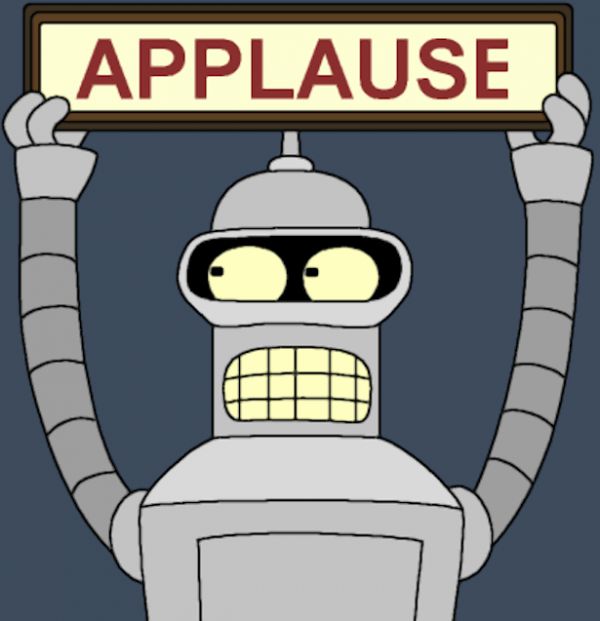
Just who decided that we should slap our hands together to indicate that we like something?
Scholars
aren't quite sure about the origins of applause. What they do know is
that clapping is very old, and very common, and very tenacious -- "a
remarkably stable facet of human culture." Babies do it, seemingly
instinctually. The Bible makes many mentions of applause - as
acclamation, and as celebration. ("And they proclaimed him king and
anointed him, and they clapped their hands and said, 'Long live the
king!'")
But clapping was formalized -- in Western culture, at
least -- in the theater. "Plaudits" (the word comes from the Latin "to
strike," and also "to explode") were the common way of ending a play. At
the close of the performance, the chief actor would yell, "Valete et
plaudite!" ("Goodbye and applause!") -- thus signaling to the audience,
in the subtle manner preferred by centuries of thespians, that it was
time to give praise. And thus turning himself into, ostensibly, one of
the world's first human applause signs.
But applause
itself went through many changes, as it was used for different purposes.
And today we are experimenting with digital methods of approval, so we
can applaud even where no one can hear the sound of two hands clapping.
Read the entire story at the
Atlantic.
 Just who decided that we should slap our hands together to indicate that we like something?
Just who decided that we should slap our hands together to indicate that we like something?
No comments:
Post a Comment